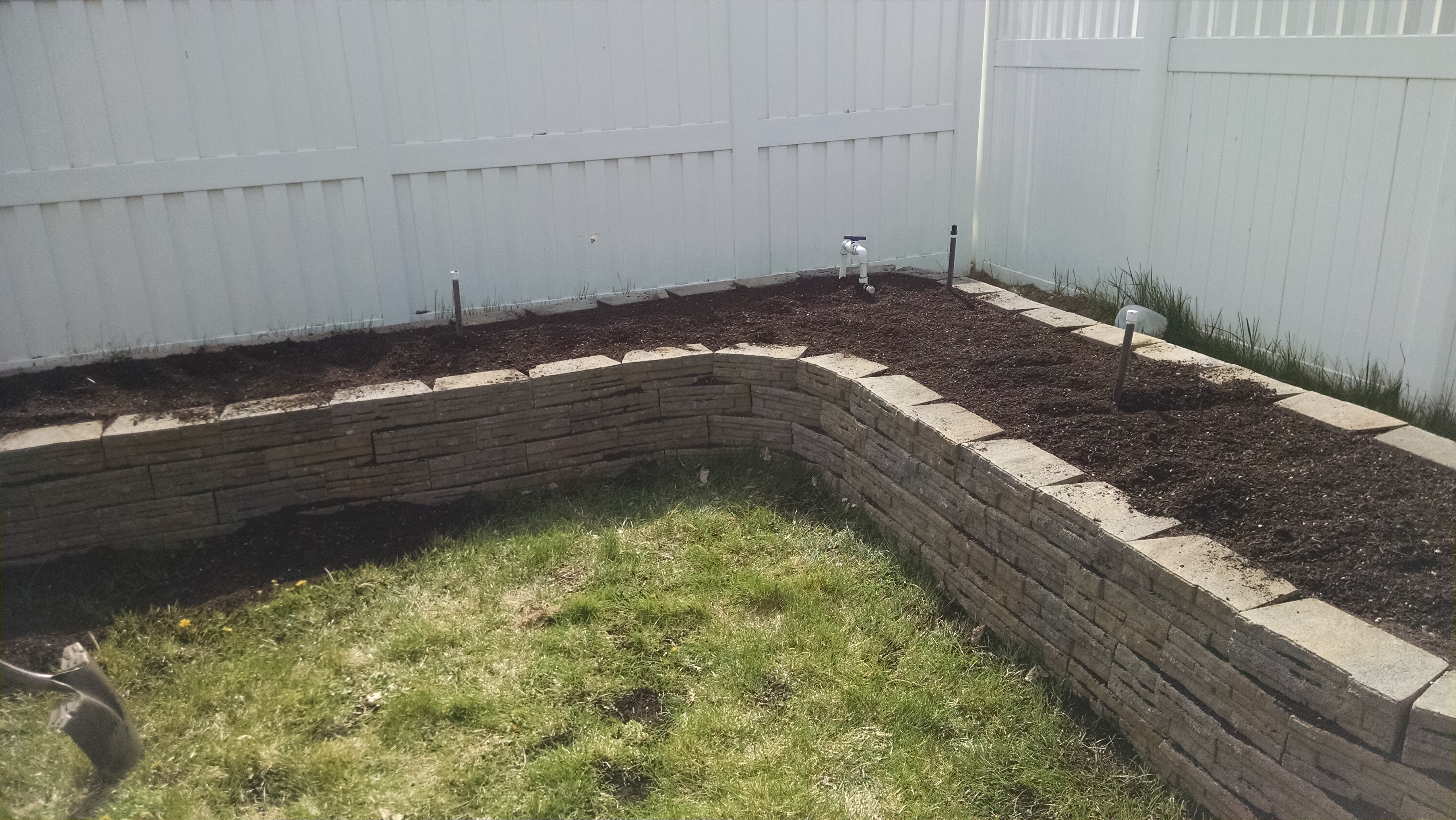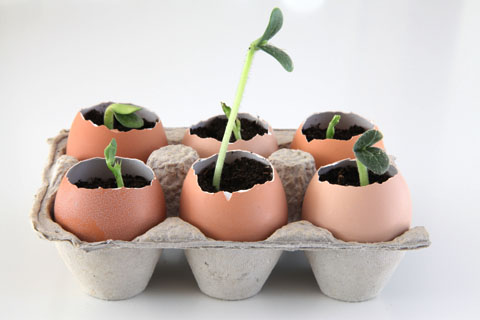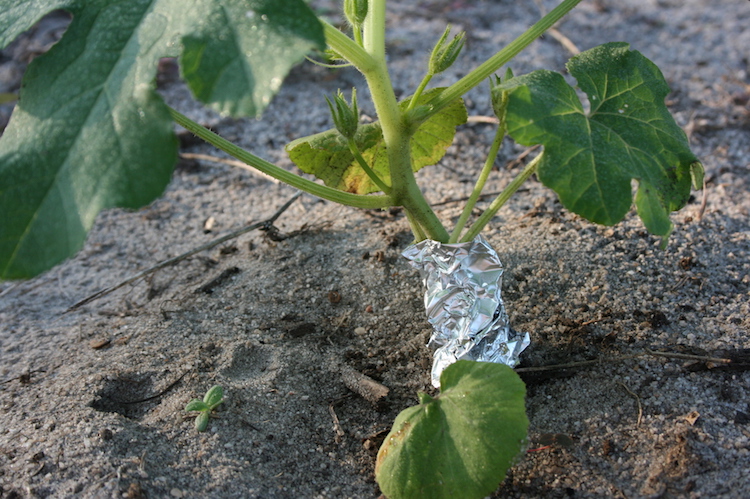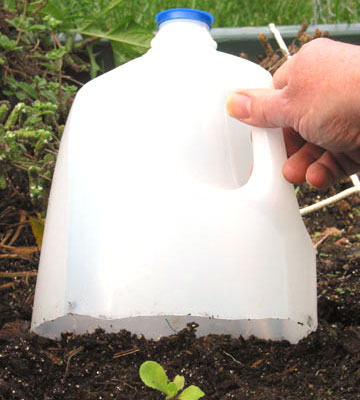How Does your Garden Grow?
My husband is a very handy guy. I try not to take advantage of that too much… Okay, the truth is, he’s always doing projects for me. This year he built me a beautiful raised garden bed in our backyard. I am so excited to have a vegetable garden I can hardly stand it!

I have a little bit of experience with gardening, but not much. The first time I planted a garden, it was a blind experiment. I did very little research and just planted things hoping they would grow. I made a lot of mistakes, (like planting pumpkins in the middle of everything), but despite my mishaps, I actually harvested a lot from my garden that first year.
I thought I would do a little more research this time around, and share with you a few vegetable growing hacks that are floating around the Internet. I do not have personal experience with any of these ideas, so I would love to hear from any of you experienced gardeners out there. What do you think of these ideas? What do you do to help your garden grow?
- Mix Epsom salt into your soil. I have seen several articles about the benefits of adding Epsom salt o your garden. Epsom salt can improve seed germination, help plants better absorb nutrients, deter garden pests, make your plants greener, and help you grow sweeter, more flavorful fruits and veggies. You mix 1 cup of Epsom salt into 100 square feet of garden soil or mix 1-2 Tablespoons into the bottom of the hole where you are planting a seed.
- Use eggshells in the garden. Eggshells can be ground into a calcium-rich powder that you sprinkle on your soil for extra nutrients. Some people cleverly suggest using cracked egg shells as planters. You can start your seeds in a small amount of soil inside the eggshell. Then when the seedling starts to grow, plant the eggshell in the soil with your seedling.
- Make your own homemade weed killer. Everyone knows it is important to keep weeds at bay so your plants have room to grow. There are several recipes floating around for homemade weed killer. One popular recipe I have seen is to mix one gallon of vinegar, one cup of salt and one tablespoon of blue Dawn dishwashing soap. Just be careful not to spray it on your plants…it will kill those too!
- Similarly, make your own homemade insecticide. Popular ingredients in homemade insecticides include garlic, peppermint essential oil, lemon essential oil and dish soap. Another idea to keep bugs away is to wrap your plant stems in aluminum foil. Many insects do not like shiny surfaces and will stay away.
- Use those empty milk jugs! Milk jugs are great for the garden. Once they have been rinsed out, you can cut off the bottom and stick them over your plants. This can help protect plants from frost as well as insects. Once they plants start growing out of the top of the milk jug it is time to remove them. This hack works especially well for tomatoes, peppers, and cucumbers.
- Mix baking soda into your soil. Baking soda can help prevent fungus in your garden. This is especially helpful for wet climates where your garden may receive lots of extra moisture. Since baking soda reduces the acidity of your soil, some people claim it will make your tomatoes (and other veggies) taste sweeter.



- https://onelittleproject.com/vegetable-garden-hacks/
- https://www.naturallivingideas.com/10-incredible-uses-for-epsom-salt-in-the-garden/
- https://cutediyprojects.com/garden/50-garden-tips-and-hacks-to-turn-you-into-a-gardening-expert/
- https://garden.lovetoknow.com/wiki/Recipe_for_Vinegar_Weed_Killer
- https://www.mnn.com/your-home/organic-farming-gardening/stories/13-garden-hacks-experts
- https://www.ideahacks.com/vegetable-garden-hacks/
 Cristina Duke
Cristina Duke
Monthly Newsletter Contributor since 2014
Email the author! cristina@dvo.com
